
Peta Crewe, with over 25 years of regional development experience, is appointed as the new Regional Manager for UniSA's Mount Gambier campus. She succeeds Ian McKay, bringing expertise in forestry, agriculture, and community development, and aims to address regional challenges alongside UniSA Vice Chancellor Prof. David Lloyd.

The University of Sydney receives a $100 million donation from the Khuda Family Foundation to support a 20-year initiative aimed at increasing female participation in STEM fields. The program offers tutoring, mentorship, and scholarships to young women from Western Sydney, addressing gender disparity in technology and science.

MyCourseFinder announces opportunities at TAFE Queensland, including a $5,000 scholarship for an Associate Degree in Civil Engineering for the 2025 intake. Limited spots are available for the April intake, and deadlines are approaching. New international students are welcomed, and flexible payment plans are offered. Apply now for a seamless study experience.
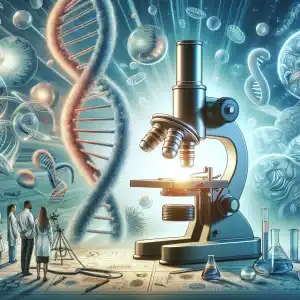
Dr. Nicole McPherson from the University of Adelaide has been awarded a prestigious fellowship for her pioneering research in male fertility. Her work focuses on the critical role of sperm in conception and child health, aiming to improve reproductive health outcomes and support men facing infertility challenges.

The ARDC and University of Adelaide have launched a new node of the Nectar Research Cloud in South Australia, enhancing research capabilities with advanced computing infrastructure. This initiative supports innovation and collaboration across various disciplines, providing researchers with essential resources for data analysis and global collaboration.

The article discusses concerns about Australian school career education programs not keeping pace with the rapidly evolving job market. It highlights the need for standardized career education to prepare students for emerging industries like AI and renewable energy, emphasizing the importance of early exposure to diverse career paths.

OpenAI introduces O3-MINI, a powerful and affordable AI reasoning model designed to enhance accuracy and accessibility in STEM fields. It offers faster, cost-effective responses with fewer errors, positioning itself competitively against models like DeepSeek's R1. Available to ChatGPT users, O3-MINI supports advanced learning and professional applications.

CSIRO researchers in Australia demonstrate quantum computing's transformative potential in handling massive datasets with unprecedented speed and accuracy. The study highlights applications in traffic management, healthcare, and energy optimization, emphasizing quantum machine learning's impact on real-world challenges and the importance of advancing quantum technologies.

Australian universities face a potential 10% drop in international student enrolments due to geopolitical tensions, economic downturns, and stricter visa policies. Despite Australia's strong educational reputation, competition from other countries and a tightening job market contribute to the uncertain outlook.

Drones are revolutionizing wildlife research by providing non-invasive methods to study animals in their natural habitats. This technology is crucial for studying large marine mammals and other species, enhancing conservation efforts, and minimizing human impact. The advancements offer promising career prospects for students in environmental science.

Groundbreaking research has identified a significant connection between gut health and hypertension, emphasizing the role of dietary fiber and gut receptors GPR41 and GPR43 in reducing blood pressure. The study highlights the importance of a high-fiber diet and explores genetic insights for future treatments.
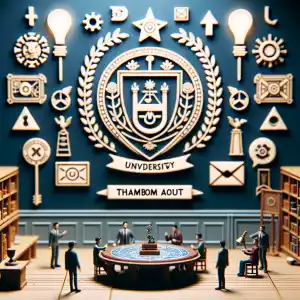
Monash University has achieved significant success in research and academia, securing $49 million in NHMRC Ideas Grants and receiving accolades for academic excellence. The university's initiatives focus on health, road safety, and education, demonstrating its commitment to innovation and societal impact.

A study by Melbourne researchers reveals how microbes purify the atmosphere by consuming carbon monoxide, using the enzyme carbon monoxide dehydrogenase. This discovery highlights the essential role of microbes in reducing pollution and maintaining planetary health.

A global study ranks Australia among the top five countries for trust in scientists. Australians support scientists' involvement in policy advocacy, with a majority believing they should communicate findings to politicians and the public. The study also explores the link between political orientation and trust in scientists.

La Trobe University has achieved remarkable global rankings, with its Medical, Health, Social Sciences, Business, Economics, Computer Science, Law, and Life Sciences programs all securing top positions. The university is recognized as the most improved in Oceania and ranks among the top 1% worldwide.

La Trobe University is enhancing its collaborations in India through strategic partnerships with educational institutions and industries. Vice-Chancellor Professor Theo Farrell's visit aims to deepen ties, promote innovation, and expand educational opportunities, focusing on fields like bio-innovation and sustainable agriculture.
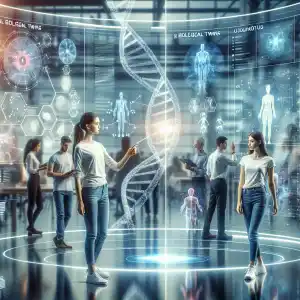
Cell Bauhaus, a University of Melbourne-affiliated biotech startup, has received a $3 million grant from the Gates Foundation to advance digital twin technology. This funding will support research in synthetic biology, aiming to revolutionize food security and sustainability through innovative biotechnological solutions.

From January 1, 2025, all student visa applications in Australia must include a Confirmation of Enrolment (COE). Applications without a COE will be invalid. Exemptions apply to certain student categories. Students should plan ahead to stay compliant with visa regulations.

The QS World Future Skills Index 2025 highlights Australia's leadership in future-ready skills, excelling in areas like digital literacy, AI, and renewable energy. The country adapts its education system to meet global job market demands, emphasizing innovation and collaboration to prepare students for emerging roles.

Ghost colleges in Australia exploit the student visa system by offering minimal education to international students, primarily from India and Nepal. The Australian government has initiated reforms to shut down these fraudulent institutions, aiming to protect the integrity of the education sector and reduce visa fraud.

Australia's international education sector reached a milestone with over one million enrolments in 2024. However, the industry faces challenges due to a significant drop in offshore student visa applications, driven by government policy changes. These shifts create uncertainty for universities and students, impacting Australia's competitiveness as a study destination.

The Temporary Graduate visa (Subclass 485) has revised study requirements, affecting Graduate Certificate and Diploma holders. The program now includes three streams based on qualifications. Graduate Certificates are no longer eligible, while Graduate Diplomas qualify if related to prior degrees. Changes took effect on 14 December 2024.

This guide explores the Bachelor of Counselling programs in Melbourne, highlighting the city's educational excellence, diverse community, and practical experience opportunities. It covers program structure, career prospects, and tips for choosing the right institution, emphasizing Melbourne's ideal environment for aspiring counsellors.

Melbourne offers diverse counselling courses, from certificates to postgraduate programs, equipping students with essential skills for a rewarding career. Accredited by professional bodies, these courses provide theoretical and practical training, with top institutions like the University of Melbourne and RMIT University offering specialized programs.

This guide explores the core values and principles of Australian society, emphasizing respect, freedom, fairness, and equality. It highlights legal and social expectations, including the importance of upholding laws, combating discrimination, and ensuring workplace rights. Resources and support systems are available to assist individuals in integrating into Australian society.
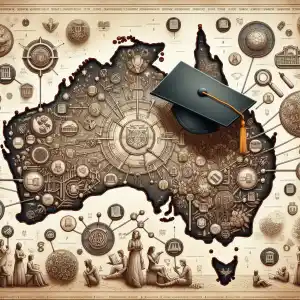
This guide provides a comprehensive step-by-step process for applying to PhD programs in Australia, covering research, eligibility, supervisor contact, proposal drafting, document preparation, application submission, funding, and visa requirements.

This guide provides an in-depth overview of the English language proficiency requirements for Australia's Subclass 500 Student Visa. It covers accepted tests, exemptions, preparation tips, and submission guidelines, ensuring international students meet the necessary criteria for academic success in Australia.

This guide outlines the necessary documents for under-18 students applying for an Australian Subclass 500 Student Visa, covering identification, parental consent, accommodation, education, health, financial evidence, and travel requirements to ensure compliance with Australia's legal and welfare standards.

Australia has replaced Ministerial Direction 107 with MD111, introducing a new prioritization system for offshore Subclass 500 student visa applications. MD111 aims to ensure equity, efficiency, and fairness for all education providers and students, streamlining the visa process while fostering inclusivity and sustainability.
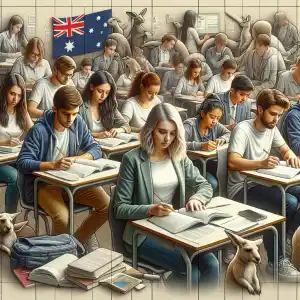
Australia offers international students a high-quality education system, diverse courses, and work opportunities. The 'Guide for International Students' course helps newcomers understand the education system, job prospects, and living conditions, ensuring a smooth transition and successful academic journey.